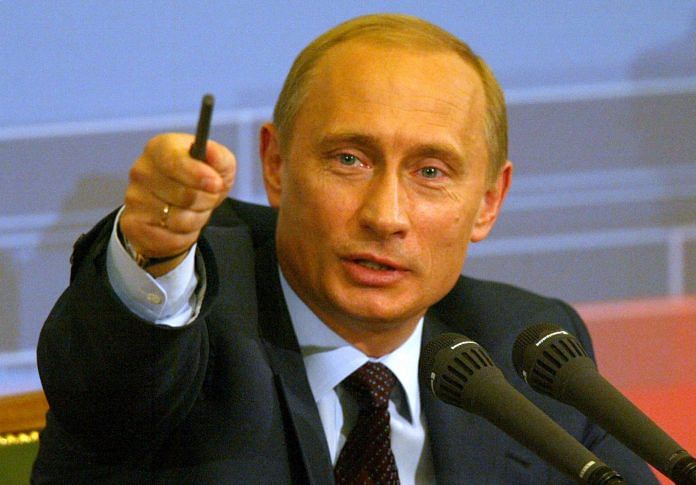Social media is being used to spread poison; Russia interfering in US elections is a part of its geopolitical imperative and Pentacostalism movement may soon make Catholics a minority in Brazil
What went wrong with social media?
Social media is being abused, and the stakes for liberal democracy could hardly be higher, argues The Economist. Not long ago social media held out the promise of a more enlightened politics, but far from bringing enlightenment, social media have been spreading poison, it rues.
“It would be wonderful if such a system helped wisdom and truth rise to the surface. But, whatever Keats said, truth is not beauty so much as it is hard work—especially when you disagree with it. Everyone who has scrolled through Facebook knows how, instead of imparting wisdom, the system dishes out compulsive stuff that tends to reinforce people’s biases.”
“This tends to discredit the compromises and subtleties of liberal democracy, and to boost the politicians who feed off conspiracy and nativism. Consider the probes into Russia’s election hack by Congress and the special prosecutor, Robert Mueller, who has just issued his first indictments. After Russia attacked America, Americans ended up attacking each other.”
No matter what Robert Mueller’s investigation finds, it is unlikely to answer the fundamental question that Ivan Krastev of New York Times is asking: Why did Russia interfere in the US elections?“If we want to figure out why the Russians did what they did, we need to leave the terrain of spy games and move to the realm of foreign policy,” he argues.“In my recent discussions with Russian foreign policy experts, they have made clear that if Moscow wants to be a world power, on an equal footing with Washington, it should be able and willing to match the United States. Russian leaders believe that Washington interferes in their domestic politics and that the United States intends to orchestrate a regime change in Moscow.”
The fear in Washington has been that Iran’s activities in Iraq are malign and destabilising, however the truth is that Iraq is not Iran’s puppet, writes Renad Mansour in The New York Times.
“To balance Iranian influence, Mr. Abadi has sought to build alliances with other local, regional and international players. He has visited Saudi Arabia, Iran’s regional nemesis, twice in recent months and has established strong ties with Washington.”
“The evolution of the fight against the Islamic State has revealed this balancing act. When the Islamic State swept across Iraq in the summer of 2014, Iran came to the rescue, quickly providing material and tactical support. Later, when Iraqi forces were advancing against the Islamic State, Mr. Abadi invited a United States-led coalition to join the fight — despite strong Iranian objections. And in more recent battles, Mr. Abadi has kept Iranian proxies back from the front lines.”
“To finally get Iraq right, the United States must move past its obsessive denial based on a fear of Iranian influence, recognize that Tehran’s abilities are limited and appreciate the fine line that the government in Baghdad has to walk. Until then, the Iranophobes will be right about one thing: Iran is the smarter player in the region.”
The Arab world is becoming more secular. And this is primarily due to a new crop of Arab leaders, who are acting, at least in part, out of political self-interest. What this means is that secularization in the region may then last only as long as the despots push the plan, argues The Economist.
“All of the change is bittersweet for the region’s liberals, who want more political openness, too. But Arab leaders are acting much like Kemal Ataturk, Turkey’s dictator in the early 20th century, who abolished the caliphate and sharia, and banned traditional garb, all while consolidating his own power.
In implementing his modernising agenda, Prince Muhammad has downgraded his family’s 250-year-old alliance with the Wahhabist clergy, who enforced a puritanical version of Islam and seemed to rule Saudi Arabia alongside the House of Saud. Now clerics who push back too hard against decrees are muzzled—or arrested. Dozens of public figures (including liberals) who were critical of the prince’s policies were detained in September.”
Brazil might have the world’s largest number of Catholics. But they’re expected to be a minority in just over a decade’s time because Pentecostalism, a Protestant movement is sweeping across Latin America and Africa, writes Sarah Pulliam Bailey for the Washington Post.
“The Catholic Church has 1.1 billion members worldwide, about half of all Christians. But much of the global growth in Christianity is found in Pentecostalism, with about 300 million followers, according to the Pew Research Center,” writes Bailey.
“Known for charismatic practices such as the laying on of hands for healing, exorcisms and speaking in tongues, and its emphasis on cultivating a personal relationship with Jesus, Pentecostalism has done a particularly good job of adapting itself to Brazilian culture, with pastors who tend to look and talk more like their flocks than Catholic priests do.”
“The belief that faith can lead to riches — known as the prosperity gospel — is a form of Pentecostalism,” Bailey says, and has helped the faith “spread quickly in poorer neighborhoods as the unemployment rate has climbed to a record 13 percent. The movement’s promises of a better material life through actions such as giving and prayer, as well as its strict social rules in Brazil banning urban ills such as drinking and smoking, give followers a sense of structure and agency over their lives, said Paul Freston, a sociologist and an expert in Pentecostalism in Latin America.”



